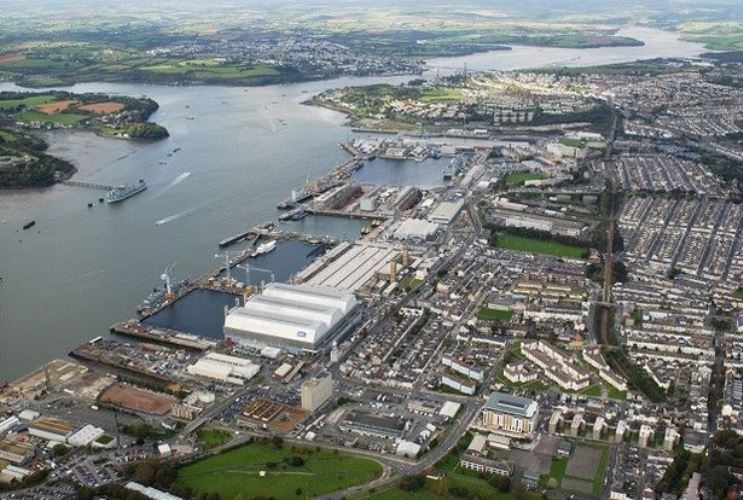Engineering giant Babcock has taken on 220 new recruits at its Devonport base.
A total of 130 apprentices and 90 graduates have joined the ranks.
The newcomers hold a variety of roles at the extensive 330-acre site, including welders, fabricators, engineers, naval architects, and project managers.
Starting his career at Babcock on the apprentice programme, Ryan Cole, said: “My apprenticeship at Devonport enables me to learn new skills whilst gaining an official qualification.
Talks over major Devonport Dockyard contract as 350 jobs 'feared at risk'
“I wanted to work with Babcock after being part of their school STEM projects. Their encouragement helped me into my career and that’s the type of company I want to work for.”
The new graduates will be focusing on a wide range of projects in the main business units at Devonport; warships and submarines, as well as having exposure to corporate functions like HR, Estates, IT and Business Development.
Devonport dockyard, where Babcock is reviewing the number of staff
Craig Lockhart, Babcock’s managing director for Naval Marine, based at Devonport, said: “We have consistently received an excellent calibre of applicants and this year is no exception. Devonport is fully committed to apprentice and graduate programmes.
“Ensuring that we are an employer of choice and able to develop an exceptional talent pool for the future is vital to our success.”
The apprentices begin their assignments working closely on a number of exciting customer projects, they will combine on-the-job training with formal development as they study for their qualifications.
Devonport’s apprentice and graduate programmes have grown year-on-year, demonstrating Babcock’s commitment to identifying, developing and retaining new talent for the future.
Business has been ‘booming’ at Babcock over the past year.
The Devonport dockyard operator employ thousands of people in Plymouth, raked in £5.21bn in underlying revenue for the year ending March 31, 2017, which is up 7.7 per cent on last year's £4.8bn.
